Vaccinations during pregnancy: Del Ponte Hospital provides whooping cough vaccine
In April, the Del Ponte Hospital, in Varese, will start providing the service, free of charge, for women in their seventh month of pregnancy. This will be the first hospital in Lombardy.
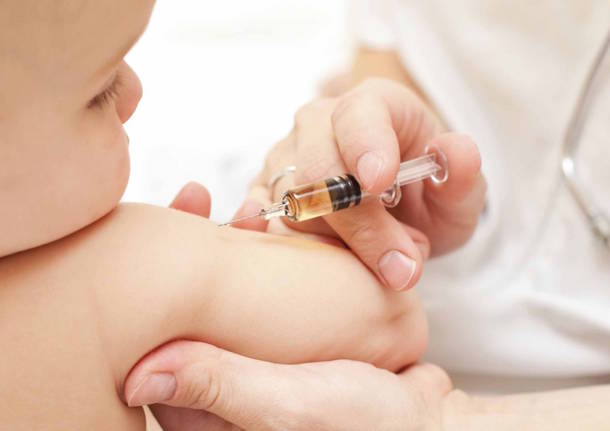
Getting vaccinated against whooping cough. The first hospital in Lombardy to provide this service for pregnant women is the Del Ponte in Varese.
“At a time when vaccines are a delicate subject,” explained Prof Fabio Ghezzi, director of the Mother-Child Integrated Network of the Sette Laghi Health District, “the introduction of whooping cough vaccines for pregnant women, which is recommended by the new National Vaccine Prevention Plan, is a challenge that I welcomed, in order to encourage the creation of a dedicated in-hospital vaccination plan during pregnancy that can be done even outside vaccination centres. The objective is to provide mums-to-be with a very important service, something that is already done abroad: the inoculation of women in their third trimester of pregnancy, to protect their babies against contracting serious diseases, like whooping cough. We thought we could best combat the distrust and disinformation by providing vaccinations directly in maternity wards, where those with specific training in the obstetric and perinatal fields can give precise, qualified information.”
The service will start next month, in April, and is intended for women resident in Lombardy who have national health cover (for those who do not satisfy these requirements, there is always the local vaccine centre).
Thus, the Sette Laghi Health Authority set up a negotiating table to introduce the whooping cough vaccine, anticipating the timeline of Lombardy Region. At the table, there were representatives of the hospitals involved in planning this service, who sought to implement the philosophy of the “integrated network”. Along with Fabio Ghezzi, there were Antonella Cromi, Debora Balestreri and Carlo Bulgheroni representing the three maternity wards in the health authority, Dr Anna Iadini, of the Medical Department of the Del Ponte Hospital. Dr Gianfranco Macchi and Dr Augusta Diani, representing the territorial areas, Dr Vania Ferrari, the director of the Access System Facility, Dr Antonio Staffa and Dr Nadia Ferrari for the Department of Healthcare and Health and Social Professions, Dr Anna Malesci, director of the Pharmacy Department and Cristina Crosta, who coordinates the out-patient departments in the Padiglione Ottagono.
In the last decade, there has been a disturbing increase in the number of cases of whooping cough in many first-world countries. In the last 10 years in Lombardy, there have been an average of 85 cases of whooping cough per year (136 in 2016), 35% of which have been in the 0-4 year age range. The vaccine provides cover for 7/8 years, and is particularly recommended for pregnant women to provide cover for the baby during its first few months of life. The whooping cough vaccine is one of those that became compulsory with the Lorenzin Law, and the first dose of the vaccine should be given in the second month of the baby’s life.
“Whooping cough can be severe for anybody,” Professor Massimo Agosti, the head of the Woman and Child Department, explained. “For a baby, it can be life-threatening, with a mortality risk of around 1 in 200. About half of the babies under 1 year of age who contract whooping cough are admitted to hospital. The younger the baby, the more likely it is that it will need hospital care, because of the complications of the infection, such as severe respiratory failure, pneumonia and convulsions.”
Why should the vaccine be given during pregnancy? This is explained by Prof Antonella Cromi, the Head of the Diseases during Pregnancy Specialisation School. “When a woman is vaccinated against whooping cough during her pregnancy, her body starts producing antibodies, which pass through the placenta to the baby before its birth. These antibodies provide the baby with short-term, passive protection (the mother’s antibodies remain in the baby’s blood for a limited period of time). The international guidelines suggest that the best time to administer the vaccination is between the 27th and 36th weeks of pregnancy (the regional vaccination plan indicates the 28th week as the best time); it seems that this is the optimal time to guarantee the highest concentration of antibodies in the body of the baby at birth, and their persistence during the first months of life, until the baby can itself be vaccinated. Women need not worry about the safety of the whooping cough vaccine during pregnancy, as this practice has been assessed in clinical trials on hundreds of thousands of mother-baby pairs and did not show any increased risk in mother-foetus complications linked to administration of the vaccine. In many countries, from the United Kingdom to the United States and Australia, this practice has already been routine for years. Thanks to the long experience of these countries, we know that the efficacy of the vaccine, when administered during pregnancy, in preventing neonatal infection in the first two months of life is greater than 90%. Alternative preventive strategies, such as vaccinating the mother and her closest relatives after the birth of the baby, have not proved to be as effective, so all international health authorities consider the whooping cough vaccine during pregnancy to be the most effective strategy in preventing neonatal infection.”
TAG ARTICOLO
La community di VareseNews
Loro ne fanno già parte
Ultimi commenti
bianca1977 su Varese si prepara a dire addio alla piscina di via Copelli: al suo posto si valuta un impianto per la pallavolo
Fabrizio Tamborini su Elly Schlein a Varese: “È una vergogna che prosegua l’occupazione di Gaza, e il silenzio del governo Italiano è complicità”
Felice su Latitante 20enne arrestato a Saronno dai Carabinieri: era evaso dai domiciliari
PaoloFilterfree su Brutale pestaggio in centro a Varese. La testimonianza di un cittadino
Felice su Sabato è il giorno di Va Live Pal: musica, arte e impegno civile ai Giardini Estensi di Varese
gokusayan123 su Varese, arrestato per stalking un 20enne: pedinava una commessa da due mesi



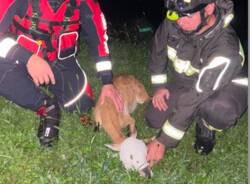


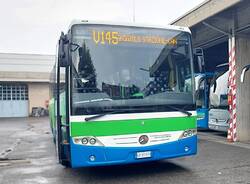
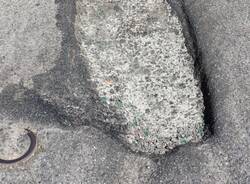

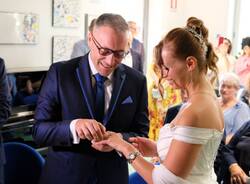



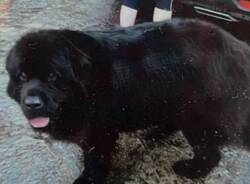


Accedi o registrati per commentare questo articolo.
L'email è richiesta ma non verrà mostrata ai visitatori. Il contenuto di questo commento esprime il pensiero dell'autore e non rappresenta la linea editoriale di VareseNews.it, che rimane autonoma e indipendente. I messaggi inclusi nei commenti non sono testi giornalistici, ma post inviati dai singoli lettori che possono essere automaticamente pubblicati senza filtro preventivo. I commenti che includano uno o più link a siti esterni verranno rimossi in automatico dal sistema.